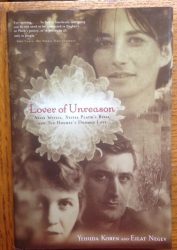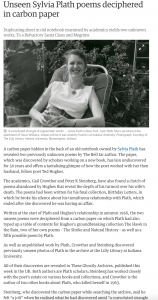Sold: “The Last Days of Sylvia Plath,” Important New Book on the Great Female Poet
Last May I mentioned on this blog that as literary agent I was developing a book project with an author client who would be writing an important new book on Sylvia Plath. I’m happy to announce that that proposed book is now under contract with a publisher. The author and I are very excited about the arrangement we’ve made. The book will be titled The Last Days of Sylvia Plath, and the author is prolific biographer Carl Rollyson. We’ve sold it to the University Press of Mississippi. In a concise narrative, Rollyson will chronicle the last four months of the poet’s life, drawing on hitherto unexamined sources, including the archive of Harriet Rosenstein, a controversial figure who in the 1970s undertook a biography of Plath that she never completed or published. Rollyson’s book will be an imperative study apt to re-shape the way readers view the end of the poet’s tragically abbreviated life. I posted an announcement of the deal earlier today at publishersmarket[dot]com (listing below). The manuscript will be delivered to the publisher in early 2019.![]()




